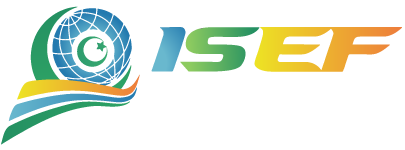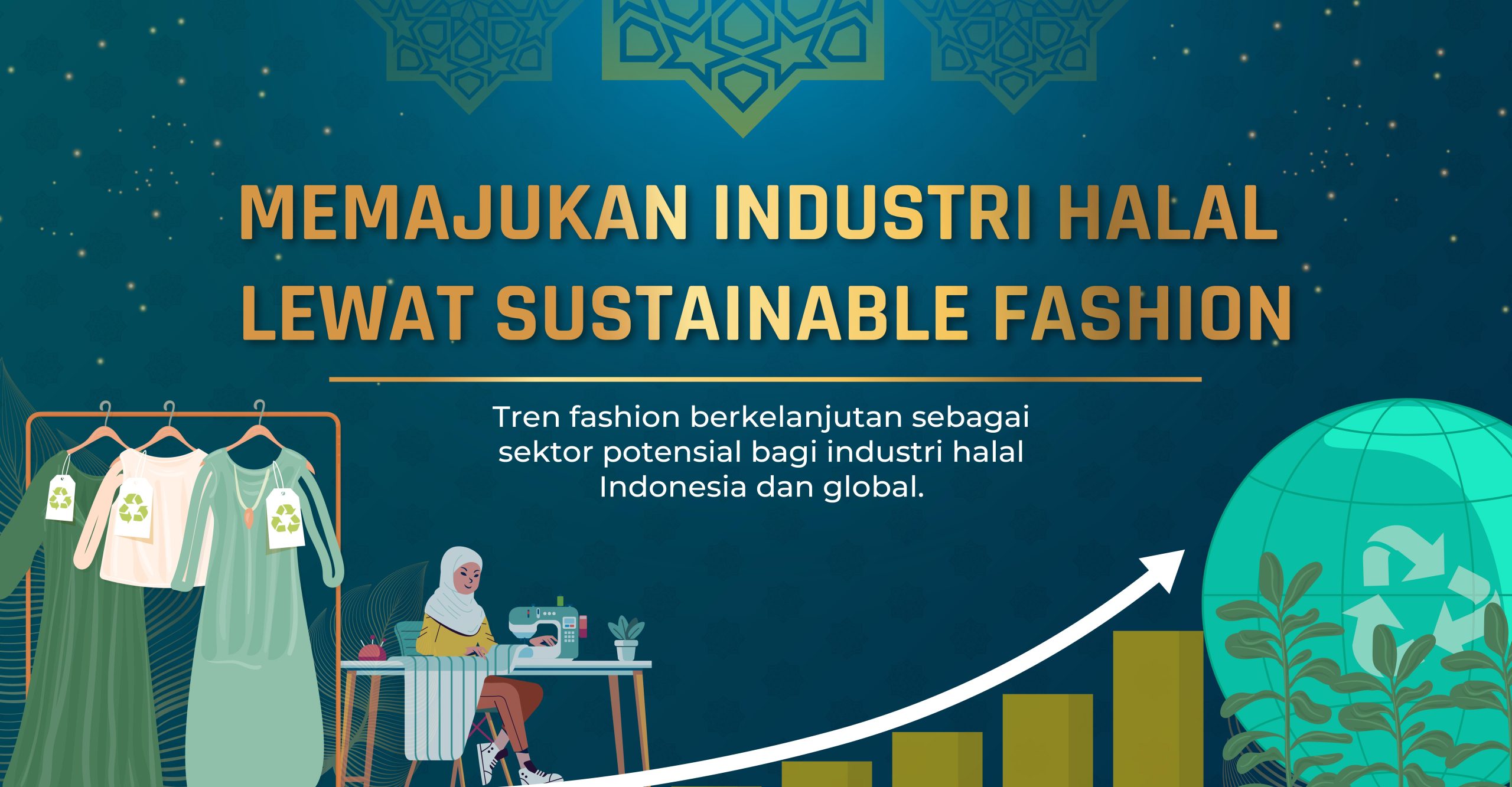Advancing the Halal Industry through Sustainable Fashion
Sustainable fashion trends as a potential sector for the Indonesian and global halal industry.
The term sustainable fashion is increasingly being discussed by the public in recent years, which refers to clothing and accessories that are made and consumed by considering environmental and socio-economic aspects. The movement emerged as an effort to overcome the negative impacts of the fashion industry on the environment, where according to data from The Business Research Company, annually this sector contributes 1.2 billion tons of carbon gas, and is also responsible for 35% of the world’s total microplastic waste.
Even so, sustainable fashion is not the same as eco-fashion that focuses on environmentally friendly messages, but is much more holistic in its approach, which is to link the impact of the production, distribution, and consumption of fashion on the earth and everything in it. Its mission is more to encourage the fashion industry to not only pursue profit, but also to bring added value in the form of welfare for the environment, social and economy.
According to Ali Charisma as Chair of the Indonesia Fashion Chamber (IFC), sustainable fashion focuses on three pillars namely People, Planet, and Profit. The first pillar, ‘people’, refers to fair business practices, both for workers and customers. Shared welfare through fair trade is the key to sustainable fashion business practices, which play a role in providing equal opportunities for workers in the industry.
While the second pillar, namely ‘planet’, refers to how fashion businesses must pay attention to environmental conditions. In addition to making the production process more environmentally friendly by using natural fibers, natural dyes, and so on, sustainable fashion also involves consumers by inviting them to reuse and recycle their fashion products.
The last pillar is ‘profit’. As a business, of course, sustainable fashion still aims to make profit, but this must be obtained without abandoning ethical principles towards the environment and socio-economics.
Sustainable Fashion as a Halal Industry
The principle of sustainable fashion business practices has similarities with the halal industry which is guided by Islamic law, where economic activities, although aiming to achieve profit, must still bring benefits to the surrounding area and aim for the common welfare. In the halal industry, production practices are also required to pay attention to sustainability and the impact on the environment.
Due to the similarity of business principles, it is not surprising that sustainable fashion is then considered to be a leading sector in the development of the global halal industry. Basically, the muslim fashion industry alone has a large opportunity, as in the State of the Global Islamic Economy report which predicts that the muslim fashion industry will be worth around USD 402 billion in 2024. This figure is mostly dominated by the millennial generation market which, according to a 2018 Business of Fashion study, is a generation that stresses the importance of sustainability concepts for the products they consume. Even 66% of the millennial generation are willing to spend more money to get sustainable products.
Meanwhile, according to the Business Wire Global Ethical Fashion Market Report 2020, the global sustainable fashion market is worth USD 6.35 million in 2019 and is predicted to continue to increase to USD 9.81 million in 2025. If the incorporation of sustainable fashion into the halal industry can be done more quickly, there will be greater opportunities for the halal industry market to be obtained. This is also related to the value of sustainable fashion which is more relevant so that it can attract more consumers.
In Indonesia, the incorporation of sustainable fashion into the halal industry can be seen at the 7th ISEF in 2020, which carries the theme “Sustainable Fashion, Sustainable Lifestyle”. It featured 164 designers/brands with 720 looks, who besides holding fashion shows also had the opportunity to do business matching with local and international buyers (bisa diselipkan informasi angka transaksi khusus fashion pada ISEF 2020). ISEF 2020 also plays a role in encouraging manufacturers of raw fashion materials to participate in this sustainable fashion trend, in order to help push this industrial sector to be bigger and stronger. The production of environmentally friendly raw materials such as viscose, rayon, and cotton, as well as the use of natural dyes, are the majority practices in sustainable fashion players in Indonesia.
The hope is that sustainable fashion in Indonesia will continue to develop along with the domestic halal industry. So that the consumption of Muslim fashion in Indonesia, which amounted to USD 16 billion in 2019, can increase, with the addition of a wider appeal of sustainable fashion that is relevant to today’s lifestyle. Of course, the halal and sustainable fashion industry players must be the hosts in their own country, they can even be encouraged to expand their market abroad. In accordance with the target of Vice President Ma’ruf Amin and Minister of Cooperatives Small and Medium Enterprises Teten Masduki to make Indonesia a mecca for global muslim fashion.


